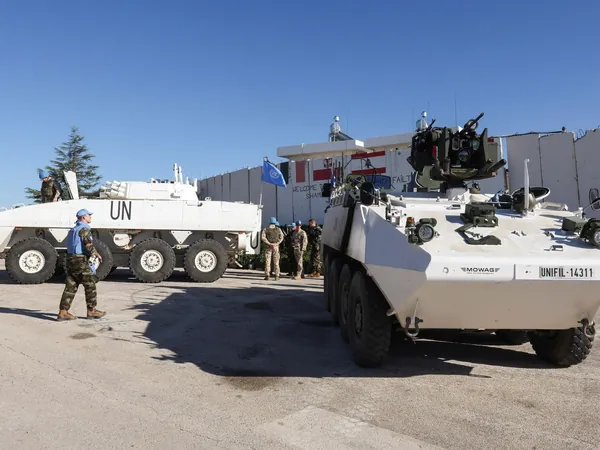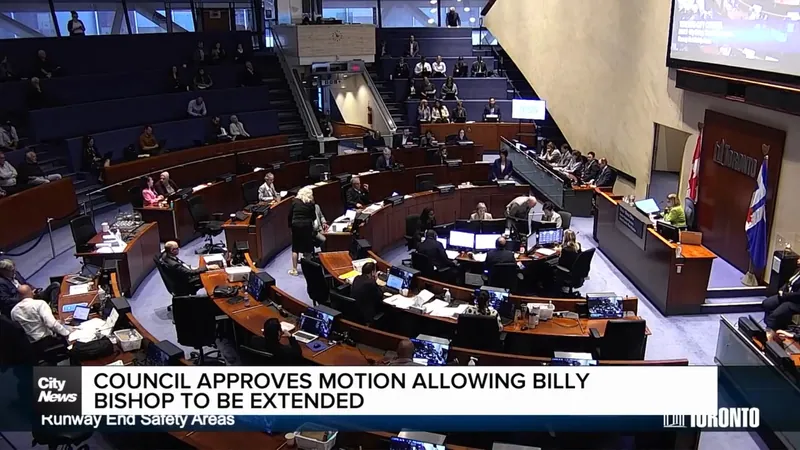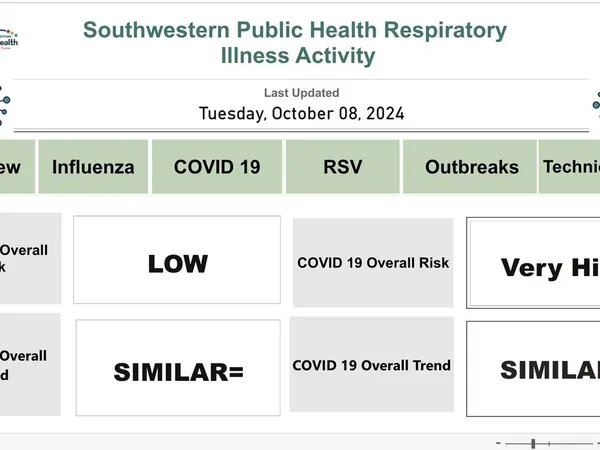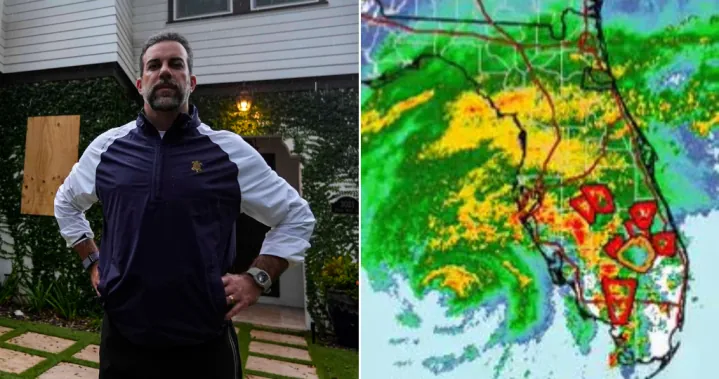
Global Outrage: Israel's Attack on UN Peacekeepers in Lebanon Sparks International Condemnation
2024-10-11
Author: Michael
In a shocking escalation of violence, Israeli forces have fired upon the United Nations Interim Force in Lebanon (UNIFIL) headquarters located in Naqoura, injuring two Indonesian peacekeepers. This incident has drawn sharp rebuke from various nations and international organizations.
UNIFIL, established in 1978 to oversee peacekeeping efforts in southern Lebanon, confirmed that Israeli tanks targeted a watchtower at their base. The attack has been characterized by UNIFIL as a “grave violation of international humanitarian law,” underscoring the risks peacekeepers now face in a region fraught with tension.
UN Calls for Accountability
Jean-Pierre Lacroix, the UN undersecretary general for peace operations, addressed the UN Security Council, expressing that the safety of peacekeepers is "increasingly in jeopardy." He remarked that operational activities have nearly come to a halt following Israel's recent military actions against Hezbollah, emphasizing that peacekeepers have had to confine themselves to their bases for safety.
Since September 23, the situation has deteriorated, with UNIFIL spokesperson Andrea Tenenti labeling the attack a "very serious" violation. He indicated that while Israel had requested peacekeepers to relocate away from certain positions, UNIFIL chose to maintain their presence to uphold the UN's mandate in the area.
International Responses
The attack prompted immediate reactions from governments worldwide.
**Indonesia**, whose peacekeepers were injured, vehemently condemned the assault. Foreign Minister Retno Marsudi declared, “Attacking UN personnel is a major violation of International Humanitarian Law.” Indonesia has over 1,200 personnel with UNIFIL, highlighting its commitment to peacekeeping efforts.
**Israel's military** defended the action by claiming they cautioned UN forces to remain in safe zones, alleging that Hezbollah fighters were operating in the vicinity of UNIFIL posts. Israeli officials reiterated their status as a nation under threat and emphasized the need for military operations to safeguard their citizens.
**The United States** voiced deep concern over the incident. A National Security Council spokesperson emphasized the need for Israel's operations to not jeopardize the safety of UN peacekeepers while they pursue military targets.
**European nations** echoed the sentiment of condemnation. Italy's Defence Minister Guido Crosetto described the attack as “totally unacceptable” and potentially a “war crime.” France and Spain both called the act a serious violation of international law and demanded accountability.
**Turkey** condemned Israel's actions, accusing it of impunity amid ongoing violence in Gaza and the West Bank, while calling for international legal adherence.
**China** and **Canada** also expressed serious concern, with Canada highlighting the necessity to protect peacekeepers and accusing all parties of failing to comply with international humanitarian law.
The Bigger Picture
This incident is part of a broader pattern of escalating tensions in the region. The ongoing conflict between Israel and Hezbollah has led to increased military actions, and many fear this attack on UN forces could further destabilize the area.
As the world watches, the implications of Israel's actions raise critical questions about the effectiveness of international peacekeeping missions in conflict zones. Observers are left to wonder: how much longer can these forces operate safely, and what will be the repercussions for those who continue to violate established humanitarian standards?
As countries unite in calling for accountability, the international community must confront the reality that peacekeeping missions may no longer be viable under such hostile conditions. Will this incident serve as a catalyst for change, or will it become yet another statistic in the tragic history of conflict in the region? Stay tuned as the story develops.









 Brasil (PT)
Brasil (PT)
 Canada (EN)
Canada (EN)
 Chile (ES)
Chile (ES)
 España (ES)
España (ES)
 France (FR)
France (FR)
 Hong Kong (EN)
Hong Kong (EN)
 Italia (IT)
Italia (IT)
 日本 (JA)
日本 (JA)
 Magyarország (HU)
Magyarország (HU)
 Norge (NO)
Norge (NO)
 Polska (PL)
Polska (PL)
 Schweiz (DE)
Schweiz (DE)
 Singapore (EN)
Singapore (EN)
 Sverige (SV)
Sverige (SV)
 Suomi (FI)
Suomi (FI)
 Türkiye (TR)
Türkiye (TR)